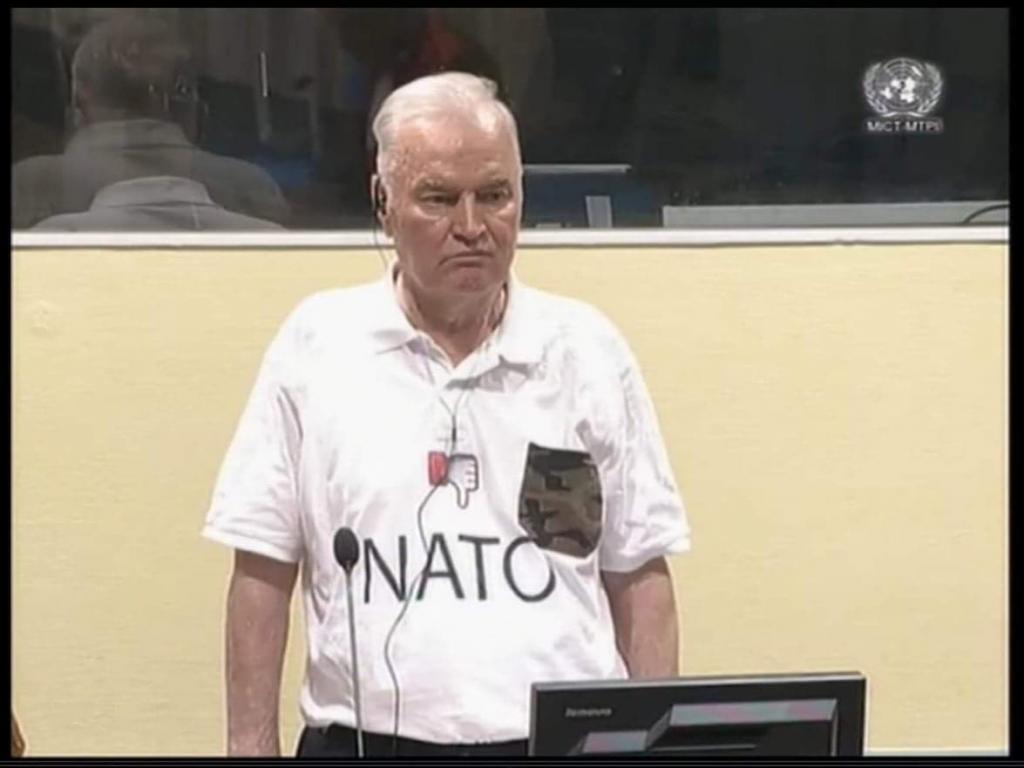Secondary menu
International Justice Never Rests: Our Summer in The Hague
Emily Tsui (2L JD/MGA) and Spence Colburn (2L)
 Mladic testifying at the Status Conference. Credit: Screenshot of public hearing.
Mladic testifying at the Status Conference. Credit: Screenshot of public hearing.
For three months this summer, we interned at the International Residual Mechanism for Criminal Tribunals (IRMCT) in the Office of the Prosecutor’s Trial and Appeal Divisions. We had a fantastic summer learning about international criminal law in the beautiful Dutch city of The Hague - the international city of peace and justice.
IRMCT works on ongoing cases relating to the 1990s Yugoslav conflict and the 1994 Rwandan genocide. The individuals that appear before the Tribunal are the principal architects of war crimes, genocide, and crimes against humanity during these conflicts. Working at the Tribunal was a great way to learn about these important points of history, human rights, international criminal law and international humanitarian law. We were drawn to IRMCT because we wanted to learn more about these fields, liked the idea of working in ongoing litigation, and were excited to live in a place like the Netherlands for a summer. Our internship experience exceeded our expectations.
As it was our first time working in international criminal law, we faced some challenges in our work. In the Trial division, Spence worked on ongoing litigation pertaining to Prosecutor v Stanišić & Simatović. It was tough at times to manage the competing expectations of up to eight trial lawyers, and there was a large amount of administrative assignments relative to substantive work. In the Appeals division, Emily worked on the pre-appeal phase of Prosecutor v Ratko Mladić, principally on the acquitted charge of genocide in the municipalities of Bosnia and Herzegovina. Navigating the voluminous case law and understanding the legal context was difficult, especially in the absence of a single database to search through the jurisprudence.
However, these challenges were far outweighed by the highlights of our internship. We both learned a lot by conducting legal and factual research, interacting with our highly-accomplished supervising attorneys, and receiving tours of the evidence archive. In particular, Spence was able to appear in court and attend witness proofing, which is an extraordinary experience for a student that has just completed 1L. It was exciting for Emily to come up with arguments to rebut the defence and to conduct academic legal research. We both had the sobering opportunity to observe the accused in court, including watching former Bosnian Serb General Ratko Mladić spout political diatribe about the Tribunal’s unfair targeting of Serbs while wearing a “Down with NATO” t-shirt. Throughout these experiences, we had the fortune of being a part of the remarkable intern community in The Hague, which included interns from Hong Kong, Australia, Ireland, Aruba, and Kyrgyzstan.
We strongly encourage all students to consider completing an internship at IRMCT, and more broadly, in The Hague. The IHRP fellowship is a fantastic opportunity to travel and be funded for doing so. For most students, the 1L summer represents one of the last times they will have the freedom to go abroad before accepting a 2L position in Canada. We would advise students interested in internships in The Hague to apply early. Many of these positions begin accepting applications in October and are handed out on a rolling basis. Finally, if any student has questions about IRMCT, The Hague, or an IHRP fellowship generally, we are happy to share our experiences further over Facebook or coffee.
